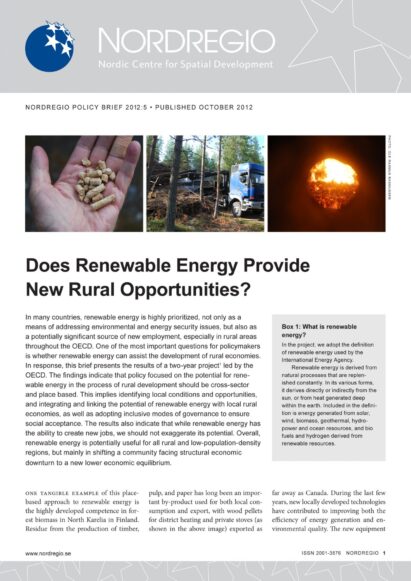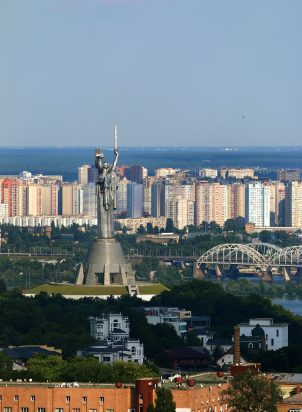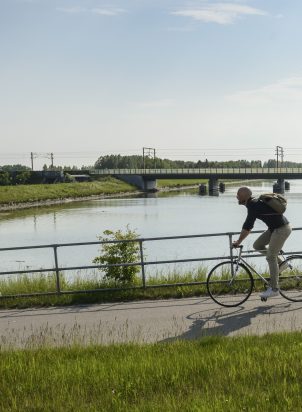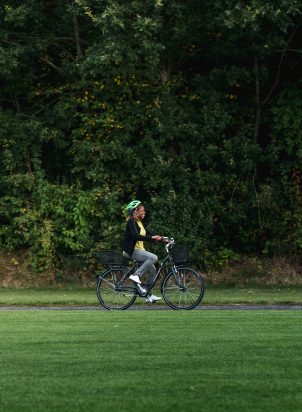In many countries, renewable energy is highly prioritized, not only as a means of addressing environmental and energy security issues, but also as a potentially significant source of new employment, especially in rural areas throughout the OECD. One of the most important questions for policymakers is whether renewable energy can assist the development of rural economies.
In response, this brief presents the results of a two-year project led by the OECD. The findings indicate that policy focused on the potential for renewable energy in the process of rural development should be cross-sector and place based. This implies identifying local conditions and opportunities, and integrating and linking the potential of renewable energy with local rural economies, as well as adopting inclusive modes of governance to ensure social acceptance. The results also indicate that while renewable energy has the ability to create new jobs, we should not exaggerate its potential. Overall, renewable energy is potentially useful for all rural and low-population-density regions, but mainly in shifting a community facing structural economic downturn to a new lower economic equilibrium.






